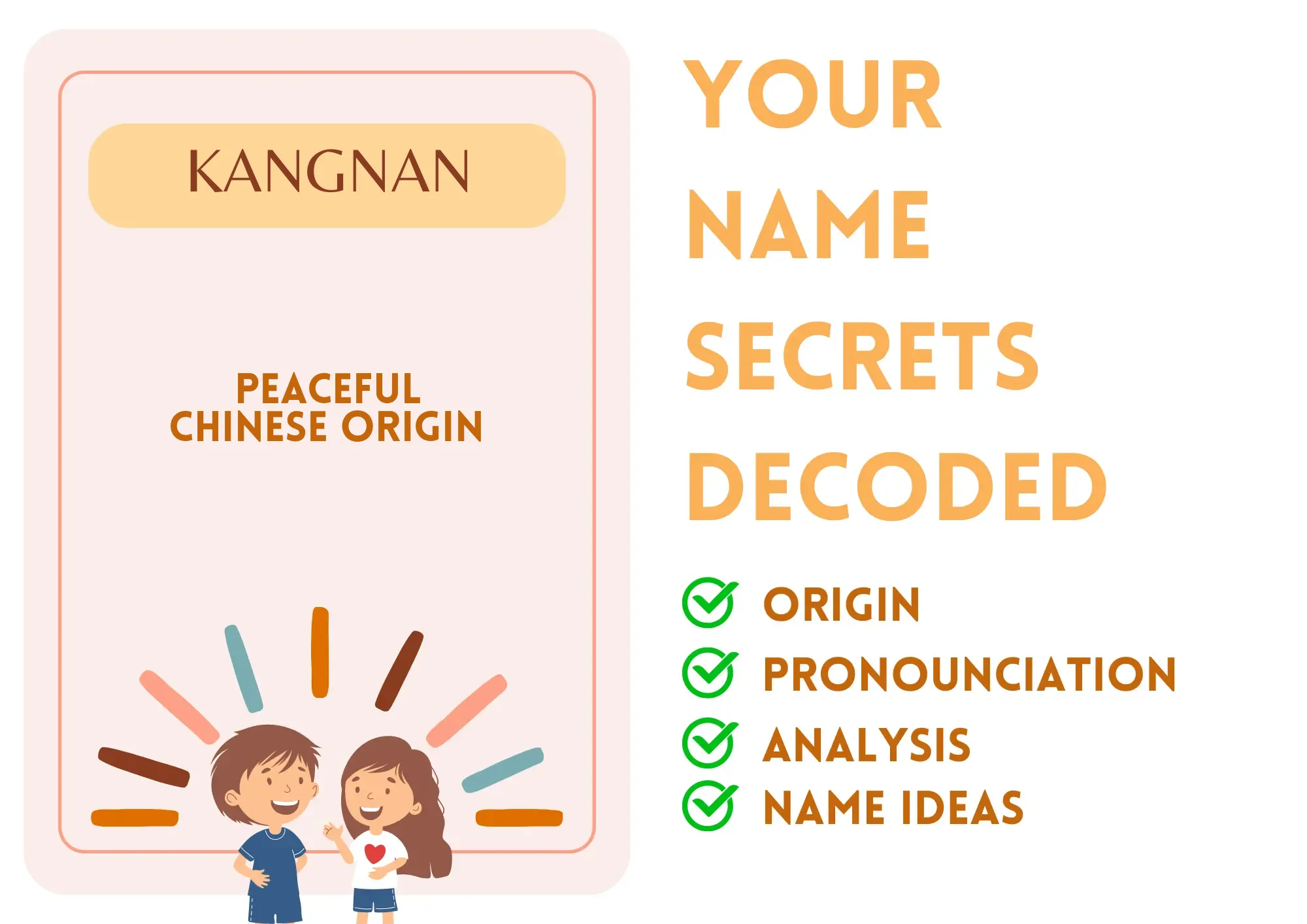
Kangnan
Kangnan is a culturally rich name that holds significant meaning, often associated with the themes of harmony and peace. The name is predominantly used in East Asian cultures, particularly within Chinese contexts, but it may also resonate in other cultures influenced by or connected to Chinese traditions. Depending on the characters used to write it, Kangnan can embody various meanings, often revolving around tranquility or balance.
This name is considered unisex, although it may lean more towards masculine usage in some cultures. Kangnan carries with it a sense of gentleness and calm, making it a favorable choice for parents seeking a name that embodies serenity.
The name is relatively uncommon globally, providing a unique identity for individuals. Its simplicity also contributes to its appeal, with easy spelling and pronunciation. Common nicknames might include Nan and K, depending on personal preferences.
Basic Information
Gender: Unisex
Sounds Like: KANG-nan
Pronunciation Explanation: The name is pronounced with an emphasis on the first syllable 'KANG', where the 'nan' is softened.
Summary and Meaning
Meaning: peaceful (Chinese origin)
Origin: The name Kangnan has Chinese origins and is composed of characters that convey meanings related to peace and tranquility.
Usage: Kangnan is a unisex name, suitable for any gender.
Name Number (Chaldean)
Name Number (Pythagorean)
Popularity (Global Rank)
Overall: 718509
Boys: 72681
Girls:
Most Popular in
Religious and Cultural Significance
Religion: Buddhism
Background: In Buddhist philosophy, which is widely practiced in East Asia, peace and harmony are central tenets, aligning well with the name's meaning.
Cultural Significance: Kangnan reflects ideals of balance and calmness, making it a culturally resonant choice in East Asian societies.
Historical Significance: The notions of peace and harmony encapsulated in the name Kangnan have deep historical roots in Chinese philosophy and Buddhist teachings, emphasizing the balance between nature and humanity.
Popular Culture
Literature and Mythology: While the name may not be prevalent in Western literature, similar motifs of harmony are often found in Chinese folklore and poetry.
Movies and Television: Kangnan does not have widely-known characters in popular media yet, but it could embody roles that emphasize serenity and balance.
Feelings and Perceptions
Perception: Kangnan is generally perceived positively, associated with calmness and harmony.
Positive Feelings: Unique, peaceful, harmonious, gentle.
Negative Feelings: Some may find it challenging to pronounce initially; it might be seen as unusual in non-Asian cultures.
Practical Considerations
Ease of Writing and Calling: Kangnan is straightforward to write and pronounce, consisting of two syllables that are easy to remember, though the spelling may be less familiar to some.
Common Typos and Misspellings: Kangnon,Kangnan,Kangnan,Kanangnan
Common Nicknames: Nan,K,Kangi
Kangnan Popularity
Kangnan Usage and Popularity By Country
| Country | Rank (Overall) |
|---|---|
| United Kingdom | 118019 |
| United States | 262335 |
Kangnan Usage and Popularity By City
| City | Rank (Overall) |
|---|
Compatibility Analysis
Famous Persons Named Kangnan
No results found for Kangnan.
Related Names
Similar Sounding Names:
Kangan,Kainan,Kangjin